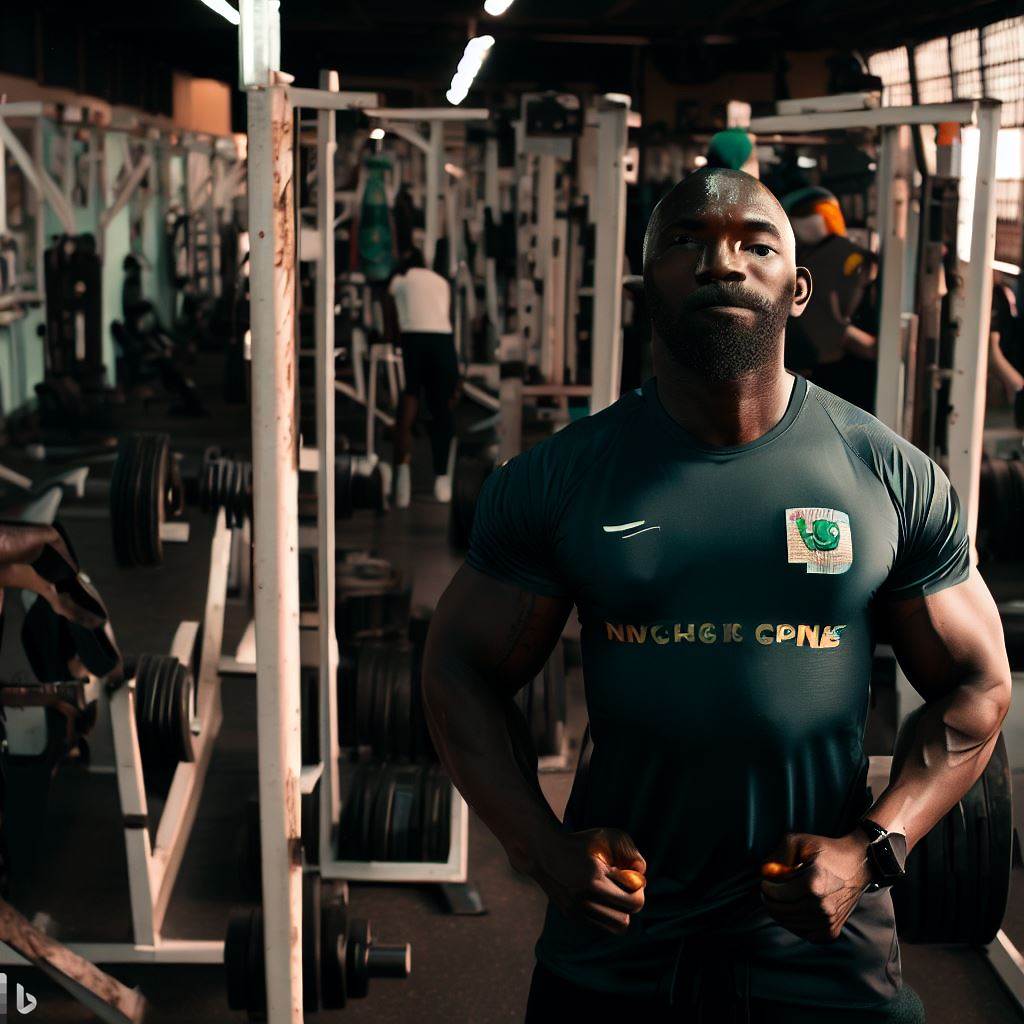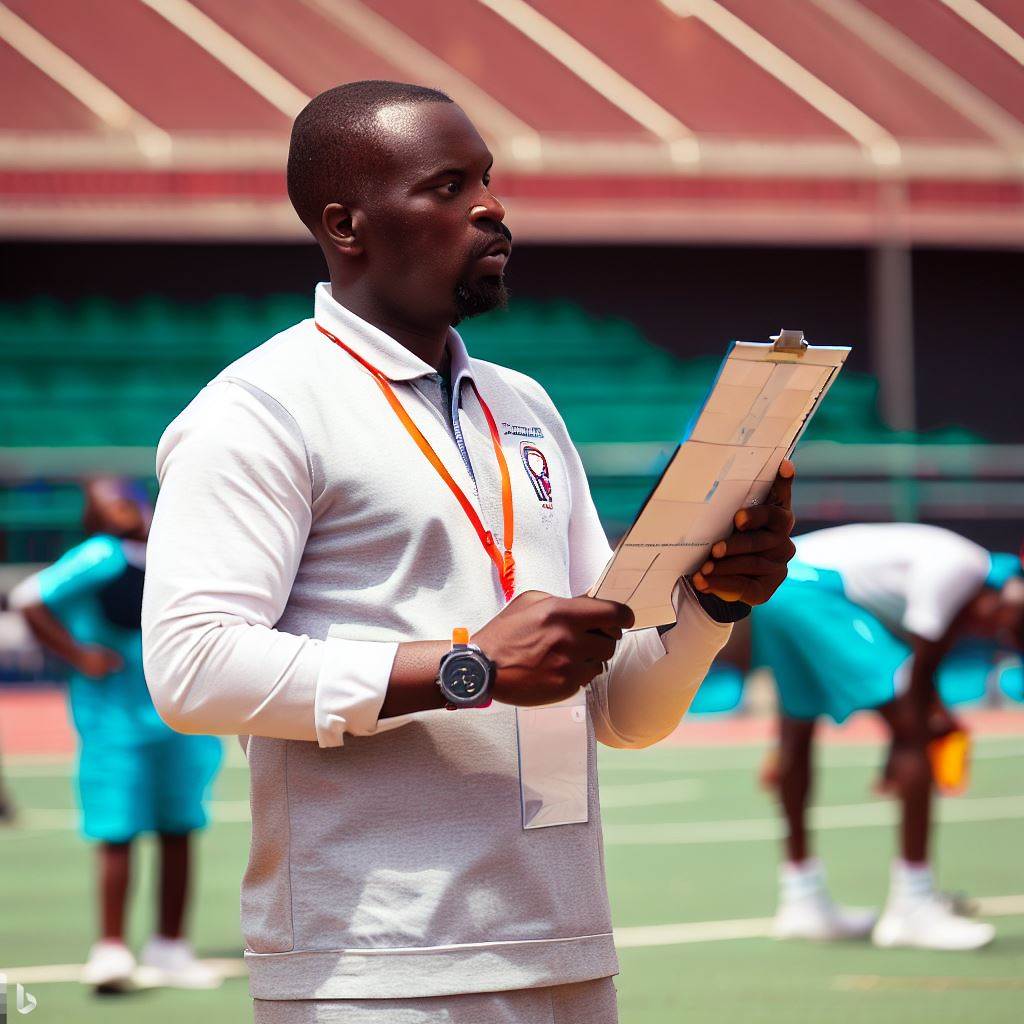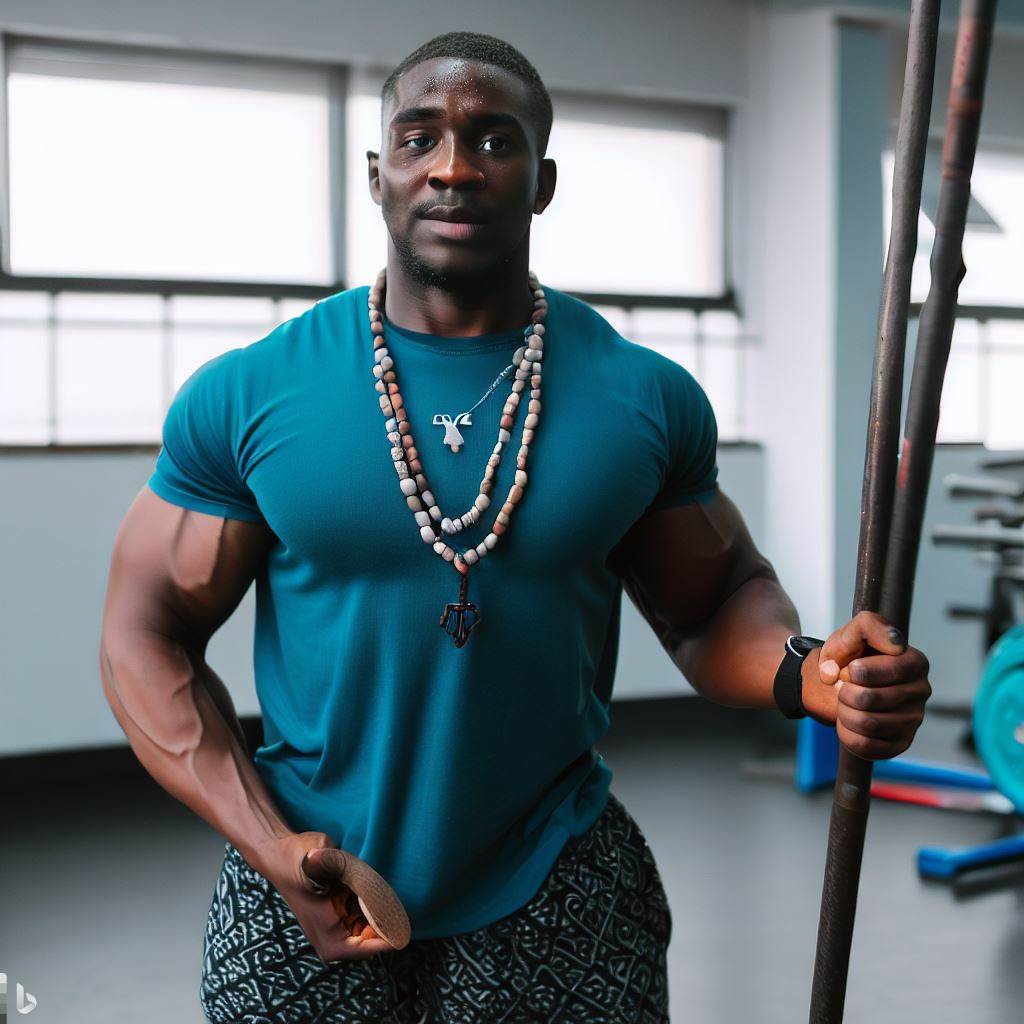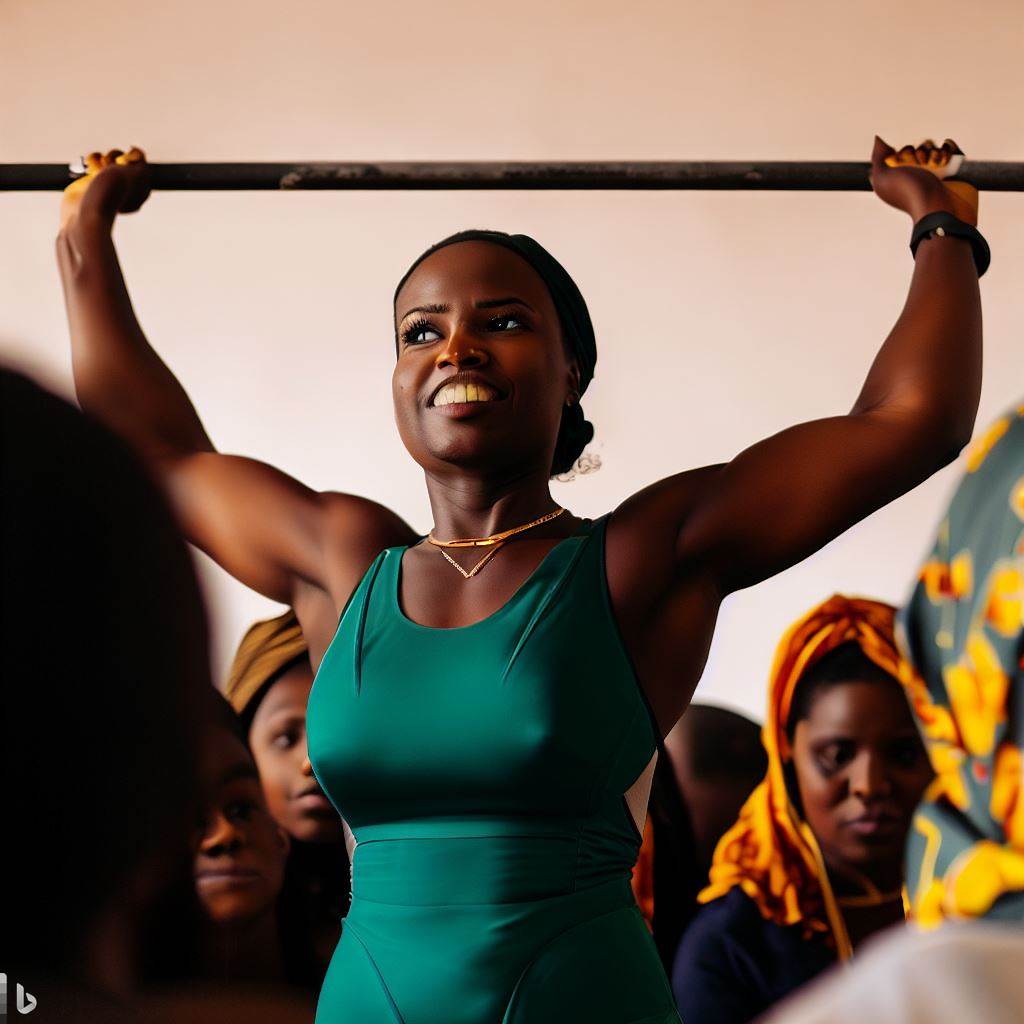Introduction
Nigeria’s Gym Culture: A Coach’s Perspective
Understanding Nigeria vibrant gym culture is fundamental for any fitness coach. It’s not just about exercise routines; it’s a holistic experience.
Here’s why:
- Cultural Sensitivity: To resonate with clients, coaches must comprehend cultural fitness preferences and dietary habits.
- Motivation Dynamics: Knowing what drives Nigerian gym-goers helps tailor motivation techniques effectively.
- Health Challenges: Acknowledging prevalent health issues like obesity and diabetes guides coaching strategies.
- Equipment Adaptation: Adapt workout plans to the availability and familiarity of gym equipment in Nigeria.
- Nutrition Insights: Offer nutrition advice compatible with local foods to enhance clients’ well-being.
Essentially, a coach’s perspective on Nigeria’s gym culture extends beyond exercise, encompassing cultural sensitivity, motivation, health, equipment, and nutrition.
This understanding is essential for effective coaching in this dynamic fitness landscape.
Overview of Nigeria’s Gym Culture
A. The growth and popularity of gym culture in Nigeria
Nigeria’s Gym Culture has experienced tremendous growth and popularity in recent years.
As more Nigerians become health-conscious and strive for a fit lifestyle, the demand for gyms and fitness centers has soared.
Fitness has become a significant part of Nigerian society, with individuals increasingly recognizing the importance of maintaining a healthy lifestyle.
The emphasis on fitness and wellness has led to the proliferation of gym culture across the country.
B. The role of fitness and wellness in Nigerian society
The role of fitness and wellness in Nigerian society cannot be overstated.
Nigerians, like many other societies, are becoming more aware of the benefits of regular exercise and healthy living.
As a result, gyms and fitness centers have become a hub for individuals seeking to improve their physical well-being.
In addition to physical health, Nigerian society also places a strong emphasis on mental well-being.
Many individuals view working out as a way to relieve stress and improve their overall mental state.
This recognition of the interconnectedness between physical and mental health has further fueled the growth of gym culture in Nigeria.
C. The influence of Western ideals and social media on Nigeria’s gym culture
The influence of Western ideals and social media cannot be ignored when discussing Nigeria’s gym culture.
With the advent of social media platforms, Nigerians now have access to a wealth of fitness-related information and inspiration from around the world.
Western ideals of the perfect body shape and size have permeated Nigerian society through social media, leading to an increased desire to emulate these ideals.
Individuals are now more motivated than ever to hit the gym and achieve their desired physique.
Furthermore, the rise of fitness influencers and celebrities on social media platforms has also contributed to the popularity of gym culture in Nigeria.
Many Nigerians look up to these influencers as role models and try to emulate their fitness routines, pushing them to join gyms and engage in regular exercise.
My Personal Experience as a Gym Coach in Nigeria
A. Personal background as a coach
As a gym coach in Nigeria, I bring a unique background to the fitness industry.
With a passion for health and wellness, I have dedicated my career to helping individuals achieve their fitness goals.
B. Insights and observations from working with Nigerian clients.
Working with Nigerian clients has provided me with invaluable insights and observations.
Every client is different, and it is important to tailor workouts and training programs to their specific needs and abilities.
One of the most notable aspects of Nigeria’s gym culture is the enthusiasm and determination displayed by clients.
Nigerians are highly motivated to achieve their fitness goals, and this passion is contagious.
C. The challenges faced as a coach in Nigeria’s gym culture
However, there are also unique challenges that arise when coaching in Nigeria. The first challenge is the lack of access to state-of-the-art gym equipment.
While major cities may have well-equipped gyms, smaller areas often lack the necessary resources.
Another challenge is the prevalence of misinformation and misconceptions about fitness.
Many clients come to the gym with preconceived notions about what will give them the best results, which can make it difficult to introduce new concepts and techniques.
The cultural perspective on body image also presents challenges as a coach. In Nigeria, there is often a focus on being “thick” or having a curvy figure.
This can sometimes clash with clients’ goals of losing weight or toning up, leading to conflicting expectations.
Furthermore, the affordability of gym memberships and personal training sessions can be a barrier for many Nigerians.
Fitness services are often considered a luxury, making it difficult to reach a wider audience and promote a healthy lifestyle.
Despite these challenges, I have learned to adapt my coaching style and find innovative solutions. I focus on creating effective and engaging workouts that can be done with minimal equipment.
I also prioritize education, helping my clients understand the science behind their workouts and debunking common fitness myths.
Read: Key Certifications for Strength Coaches in Nigeria
Key Characteristics of Nigeria’s Gym Culture
- The gym culture in Nigeria places a heavy emphasis on body image and aesthetics.
- People are often motivated to join gyms in Nigeria to achieve a desired physique.
- There is a strong focus on weightlifting and building muscle among gym-goers in Nigeria.
- The use of supplements and protein shakes is common as individuals strive to attain their fitness goals.
- Nigeria’s gym culture promotes the idea that a fit, toned body is desirable and attractive.
- Gym enthusiasts in Nigeria often compare themselves to others and set goals based on their physique.
A. The emphasis on body image and aesthetics
- Many Nigerians view a fit body as a symbol of success, health, and attractiveness.
- Magazines, social media, and celebrities play a significant role in shaping the ideal body image.
- Gym-goers in Nigeria often aim to achieve a specific body type, such as six-pack abs or muscular arms.
- There is a sense of competition and pressure to meet society’s standards of beauty and physical fitness.
- Both men and women in Nigeria strive to sculpt their bodies and maintain a certain level of fitness.
B. The prevalence of group fitness classes and personal training
- Group fitness classes, such as aerobics, Zumba, and spinning, are extremely popular in Nigerian gyms.
- These classes provide motivation, accountability, and a sense of community among participants.
- Trained instructors lead group fitness sessions and provide guidance on proper techniques and form.
- Many gym-goers in Nigeria prefer personal training sessions to receive personalized guidance and support.
- Personal trainers tailor workouts to individual needs, goals, and fitness levels for optimal results.
C. The role of social interaction and community within gyms
- Gyms in Nigeria serve as social hubs where individuals can meet and interact with like-minded people.
- Gym-goers often form friendships, support systems, and workout buddies within their gym community.
- Group exercises and fitness challenges foster a sense of camaraderie and healthy competition.
- In Nigeria, gyms are seen as places to connect, network, and build relationships beyond just exercising.
- The social aspect of gyms contributes to the overall enjoyment and long-term commitment of individuals.
Nigeria’s gym culture is characterized by a strong emphasis on body image and aesthetics.
Gym-goers aspire to attain a fit and attractive physique, often comparing themselves to others and setting goals based on their appearance.
Group fitness classes and personal training sessions are prevalent, providing motivation, guidance, and a sense of community.
The social aspect of gyms is highly valued in Nigeria, with individuals forming friendships and support systems within their gym community.
Overall, Nigeria’s gym culture combines the pursuit of physical fitness with social interaction and community building.
Read: Salary Insight: Conditioning Coaches in Nigeria
Cultural Factors Influencing Nigeria’s Gym Culture
A. The impact of traditional Nigerian values and beliefs
Cultural factors play a significant role in shaping Nigeria’s gym culture, influencing people’s attitudes and behaviors towards fitness.
Traditional Nigerian values and beliefs have a profound impact on how individuals approach exercise and wellness.
In Nigerian culture, physical strength and good health are highly valued. The belief in the importance of maintaining a strong and fit body is deeply rooted in the society.
This cultural emphasis on physicality has translated into a strong inclination towards gym activities.
B. The influence of Nigerian music and dance on gym activities
Nigerian music and dance have made a significant impact on gym activities in the country.
Music serves as a source of motivation and energy during workouts, with individuals often selecting songs that resonate with them culturally and emotionally.
The pulsating rhythms of Nigerian music, such as Afrobeat and Highlife, electrify the gym environment, driving individuals to push themselves harder.
The syncopated beats and infectious melodies create an upbeat and energetic atmosphere that encourages intense workouts.
The influence of Nigerian music extends beyond just the rhythm; it also reflects the country’s vibrant and diverse cultural heritage.
Gym-goers feel a strong sense of identity and connection to their roots as they engage in physical activities accompanied by music that embodies their cultural identity.
C. The perception of fitness as a status symbol in Nigerian society
In Nigerian society, fitness has also become a status symbol, further shaping the gym culture.
There is a growing perception that a fit and toned physique represents success, wealth, and social status.
This perception is fueled by the prominence of fitness influencers and celebrities who showcase their sculpted bodies on social media platforms.
As a result, many Nigerians aspire to achieve similar aesthetic standards as a way to gain recognition and respect in society.
This perception of fitness as a status symbol has contributed to the rise of luxury gyms and fitness centers in Nigeria.
These establishments offer exclusive amenities and services that cater to the affluent and those aspiring to be part of the elite class.
Furthermore, the association between fitness and social status has led to an increase in demand for personal trainers and specialized fitness programs.
Nigerians are willing to invest in personalized fitness regimens to achieve their desired physique and project an image of success.
Cultural factors heavily influence Nigeria’s gym culture.
Traditional values, Nigerian music, and the perception of fitness as a status symbol all play a significant role in shaping people’s attitudes and behaviors towards fitness.
Understanding these cultural influences is crucial for individuals working in the fitness industry to effectively engage with the Nigerian population and promote a healthy lifestyle.
Read: Starting as a Coach in Nigeria: Steps to Success

The Coach’s Perspective on Motivation and Goal-setting
A. Coaching strategies to motivate Nigerian clients
When it comes to motivating Nigerian clients in the gym, a coach must employ various strategies.
One effective method is to emphasize the personal benefits of regular exercise, such as increased energy levels, improved mental health, and enhanced physical strength.
By highlighting these advantages, coaches can instill a sense of drive and determination in their clients.
B. The significance of goal-setting for Nigerian gym-goers
In addition, setting realistic and achievable goals is crucial to maintaining motivation.
Coaches should work closely with Nigerian gym-goers to establish specific objectives that align with their individual fitness aspirations.
These goals can be short-term (e.g., completing a certain number of workouts per week) or long-term (e.g., losing a certain amount of weight within a specific timeframe).
Goal-setting is particularly significant for Nigerian gym-goers as it helps them track their progress and celebrate milestones along the way.
Many individuals find motivation in witnessing their own development.
When clients observe improvements in their strength, endurance, or overall fitness level, it boosts their confidence and fuels their determination to keep working hard.
C. The importance of aligning fitness goals with cultural values
Furthermore, aligning fitness goals with cultural values is essential in the Nigerian gym culture. Coaches should recognize the significance of community and family in their clients’ lives.
By highlighting how regular exercise can contribute to a healthier and happier lifestyle, coaches can tap into these values and provide additional motivation.
Nigerians place a strong emphasis on collective well-being, and by framing fitness goals within this context, coaches can foster a sense of camaraderie and support among gym-goers.
Encouraging clients to pursue their fitness goals as a group, or even involving family members in their workout routines, can help create a stronger sense of purpose and accountability.
Read: Starting a Career as a Sports Information Intern in Nigeria
Overcoming Challenges and Creating a Positive Gym Culture
A. Address common obstacles faced by gym coaches in Nigeria
- Limited access to quality gym equipment and facilities.
- Lack of financial support and sponsorship for athletes and coaches.
- Cultural barriers and stereotypes surrounding fitness and exercise.
- Inadequate training and certification opportunities for coaches.
- Limited participation and interest in fitness activities, especially among certain demographics.
B. Share techniques for creating a positive and inclusive gym environment
- Foster a welcoming and non-judgmental atmosphere for all individuals regardless of skill level.
- Promote teamwork and collaboration among gym-goers through group exercises and challenges.
- Provide personalized attention and guidance to clients to ensure proper form and prevent injuries.
- Encourage open communication and feedback between coaches and clients to address concerns and goals.
- Organize and celebrate diverse cultural and community events in the gym to promote inclusivity.
C. The role of education and awareness in changing attitudes towards fitness
- Educate the public about the benefits of regular exercise and the risks of a sedentary lifestyle.
- Raise awareness about different fitness options and debunk myths surrounding certain exercise methods.
- Collaborate with local schools and institutions to incorporate fitness education into the curriculum.
- Organize workshops and seminars for coaches to update their knowledge and share best practices.
- Use social media and other platforms to disseminate information and motivate individuals to prioritize fitness.
Creating a positive gym culture in Nigeria requires actively addressing challenges while promoting inclusivity through education and awareness.
Coaches must strive to overcome limited resources, financial constraints, and cultural barriers.
By fostering a supportive environment and providing personalized attention, coaches can help individuals achieve their fitness goals.
Moreover, by educating the public and challenging stereotypes, attitudes towards fitness can be positively shifted, leading to a more health-conscious society.
Conclusion
This blog post highlighted the main points regarding Nigeria’s gym culture.
It emphasized the importance of understanding this unique culture in order to be an effective coach.
By appreciating the uniqueness of Nigeria’s gym culture, readers can contribute positively to its development.
Understanding Nigeria’s gym culture is crucial for coaches to tailor their training methods effectively.
It requires understanding the cultural nuances, preferences, and expectations of Nigerian gym-goers.
This understanding enables coaches to provide the best support and guidance to their clients.
Additionally, appreciating Nigeria’s gym culture allows for a deeper connection with the individuals in the gym.
By embracing the unique aspects of this culture, coaches can create a positive and inclusive environment.
This fosters motivation, engagement, and ultimately leads to better results for the clients.
Furthermore, contributing positively to the development of Nigeria’s gym culture is essential.
This can be done by promoting fitness as a lifestyle choice, advocating for inclusive and diverse spaces, and supporting local initiatives and athletes.
By actively participating in and contributing to the growth of the gym culture, coaches can make a lasting impact on the fitness community.
Understanding and appreciating Nigeria’s gym culture allows coaches to be more effective in their roles.
By acknowledging the importance of cultural understanding and contributing positively to its development, coaches can create a thriving and vibrant fitness community in Nigeria.
Let us embrace Nigeria’s gym culture and work together to make it even better.




